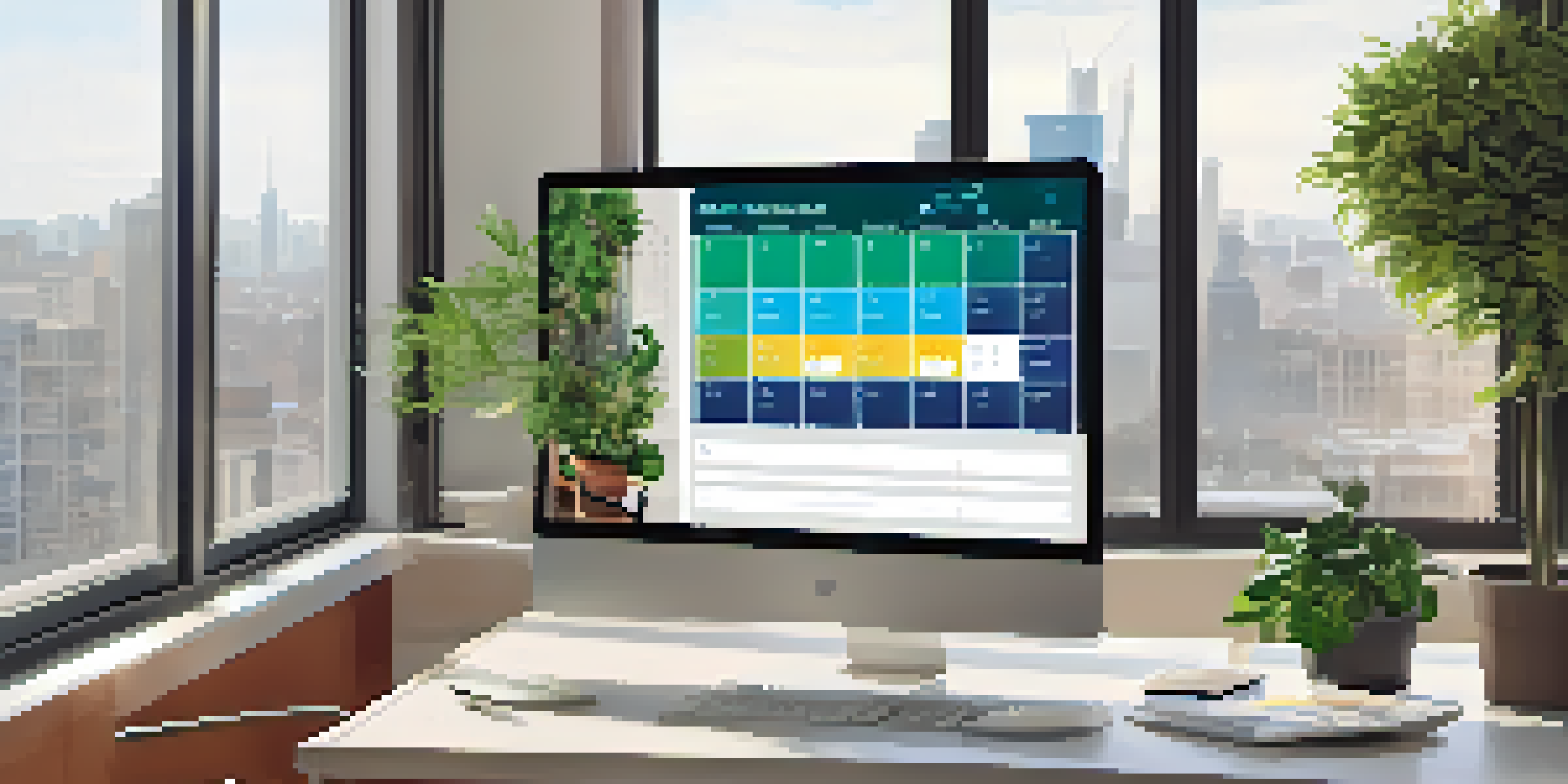Navigating Property Management Challenges and Solutions

Understanding Common Property Management Challenges
Property management can be a rewarding but challenging field. From tenant relations to maintenance issues, property managers face a variety of hurdles daily. Identifying these common challenges is the first step toward effective solutions and smoother operations. Whether it’s dealing with late rent payments or managing unexpected repairs, each issue requires a tailored approach to resolve.
The single biggest problem in communication is the illusion that it has taken place.
One of the most frequent challenges is communication with tenants. Misunderstandings can lead to frustration for both parties. Clear communication is essential in ensuring that tenants feel heard and valued. Establishing open lines of communication helps prevent many issues before they escalate.
Additionally, property managers must navigate the complexities of local laws and regulations. These legal requirements can be overwhelming, especially for those new to the industry. Staying informed about changes in legislation ensures compliance and protects both the property manager and the landlord.
Effective Tenant Screening Practices
The tenant screening process is crucial for ensuring a reliable rental experience. A thorough screening can help identify potential issues before they arise. This process typically includes background checks, credit checks, and rental history verification. By taking the time to screen tenants effectively, property managers can significantly reduce the risk of late payments or property damage.

However, it's essential to approach tenant screening with fairness and transparency. Adhering to fair housing laws is not just a legal obligation; it builds trust within the community. Using standardized criteria for all applicants promotes a level playing field and reduces the chances of discrimination claims.
Effective Tenant Screening Matters
A thorough tenant screening process helps identify potential issues early, ensuring a reliable rental experience.
Furthermore, consider conducting interviews with potential tenants. This personal touch can provide insights not easily captured through paperwork. An in-person meeting allows property managers to assess a tenant's demeanor and reliability beyond the numbers.
Streamlining Maintenance Requests and Repairs
Maintenance issues are inevitable in property management, but how they’re handled can make all the difference. Implementing a streamlined system for maintenance requests can enhance tenant satisfaction. For instance, using a digital platform allows tenants to submit requests easily and track their status. This transparency fosters trust and reduces frustration.
An ounce of prevention is worth a pound of cure.
Additionally, having a reliable network of contractors is vital. Building relationships with trusted vendors ensures that repairs are handled quickly and professionally. It’s beneficial to have a list of preferred contractors, as this can save time during emergencies.
Regular property inspections can also preempt many maintenance issues. By identifying potential problems early, property managers can address them before they escalate into costly repairs. This proactive approach not only protects the property but also enhances tenant satisfaction.
Handling Late Payments and Rent Collection
Late rent payments can be a significant challenge for property managers. Establishing clear payment policies from the outset helps set expectations for tenants. Consider implementing an online payment system that allows for automatic payments, making it easier for tenants to pay on time.
When a late payment occurs, addressing it promptly is key. Open communication can often resolve misunderstandings before they escalate. A friendly reminder can go a long way in maintaining a positive landlord-tenant relationship while ensuring timely payments.
Strong Relationships Boost Satisfaction
Building strong relationships with tenants through engagement and responsiveness fosters community and enhances tenant loyalty.
If late payments become a recurring issue, it may be necessary to review the lease terms. This could involve setting stricter consequences for late payments, which should be communicated clearly. Striking a balance between firmness and empathy is essential for maintaining tenant relationships.
Building Strong Tenant Relationships
Strong relationships with tenants are the cornerstone of successful property management. Engaging with tenants can create a sense of community and belonging. Simple gestures, such as hosting events or sending holiday greetings, can foster goodwill and encourage tenant retention.
Listening to tenant feedback is equally important. Regular surveys can provide insights into their needs and concerns. This dialogue not only helps address issues but also makes tenants feel valued and involved in their living environment.
Moreover, being responsive to tenant needs enhances trust. Whether it’s a maintenance request or a question about lease terms, quick and thoughtful responses can significantly improve tenant satisfaction and loyalty.
Utilizing Technology in Property Management
Technology has transformed property management, making tasks more efficient and streamlined. From automated payment systems to property management software, leveraging these tools can save time and resources. For example, using a cloud-based platform allows property managers to access important information from anywhere, improving flexibility.
Moreover, technology can enhance communication with tenants. Chatbots and messaging apps can facilitate quick responses to tenant inquiries, ensuring that they feel attended to. This immediacy can significantly boost tenant satisfaction.
Embrace Technology for Efficiency
Leveraging technology in property management streamlines processes, improves communication, and enhances overall tenant satisfaction.
However, it’s crucial to choose technology that aligns with your specific needs. Not all software solutions fit every property management style, so it's essential to evaluate options carefully. Investing in the right tools can pay off by reducing workload and improving tenant relations.
Staying Compliant with Local Regulations
Property managers must navigate a maze of local housing laws and regulations. Staying compliant is not just about avoiding fines; it’s about protecting both the property and its tenants. Regular training and updates on local laws are essential for anyone in this field.
One effective strategy is to join local property management associations. These organizations often provide resources, workshops, and networking opportunities that can help managers stay informed. Engaging with peers can also offer insights into best practices and solutions to common challenges.

Moreover, maintaining clear documentation is vital for compliance. Keeping detailed records of tenant communications, maintenance requests, and lease agreements can help protect against disputes. This organized approach not only aids compliance but also enhances overall management efficiency.
Preparing for the Future of Property Management
The property management landscape is constantly evolving, and adapting to these changes is crucial. Trends such as remote work and shifts in tenant preferences are reshaping the market. Staying ahead of these trends can provide a competitive edge and ensure long-term success.
Consider embracing sustainability initiatives, as many tenants are now prioritizing eco-friendly living. Implementing green practices, such as energy-efficient appliances or recycling programs, can attract environmentally-conscious renters. This not only benefits the planet but also enhances the property’s appeal.
Finally, continuous education is key to thriving in this dynamic industry. Investing in professional development courses can help property managers stay relevant. By honing their skills and knowledge, they can ensure they’re well-equipped to tackle future challenges head-on.